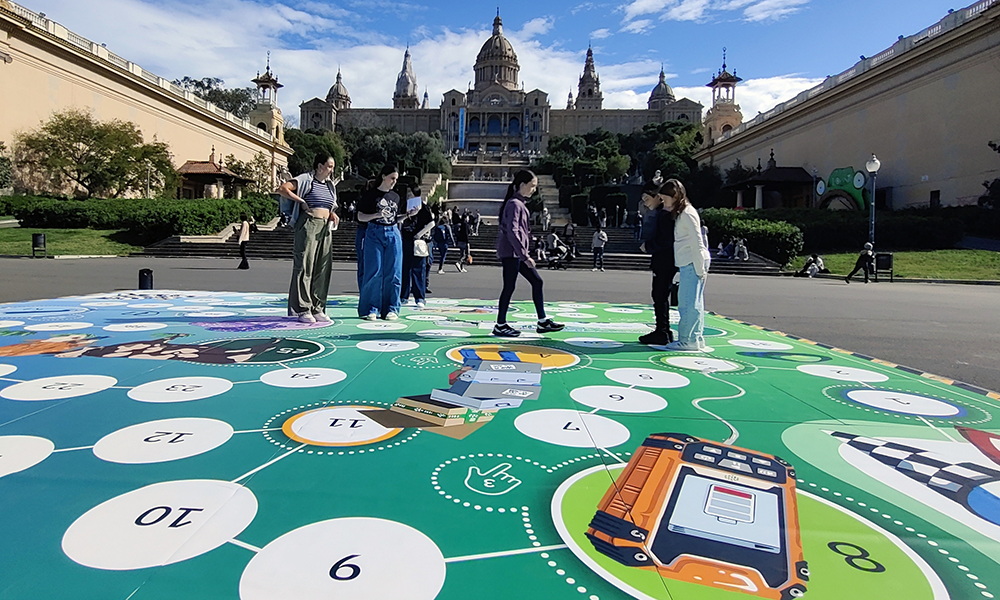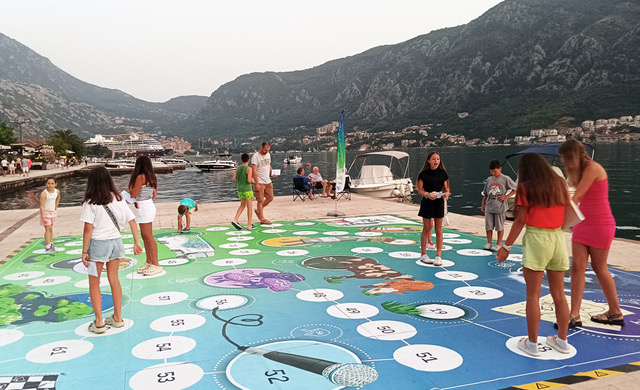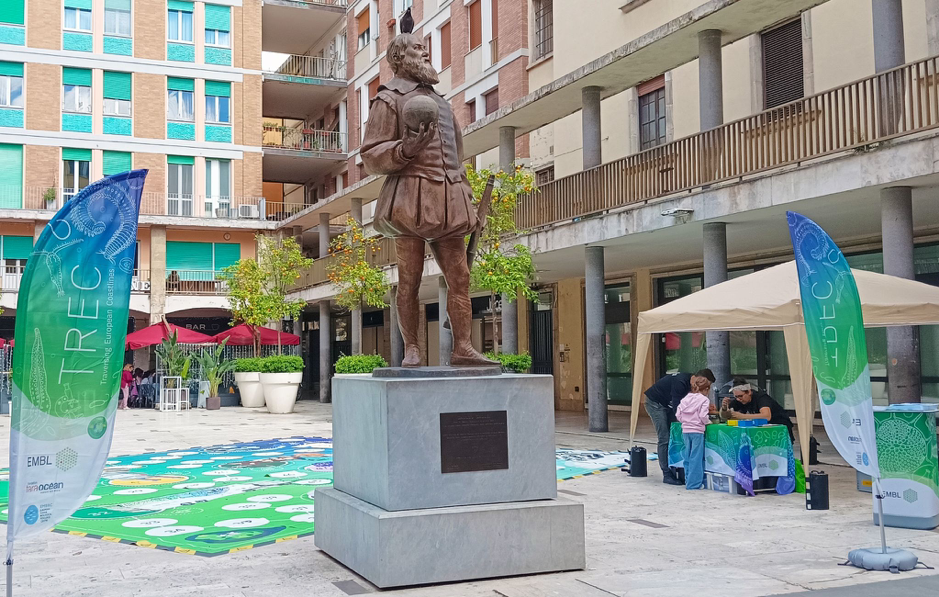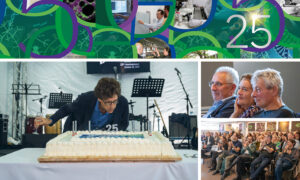
Run, Scientist, Run: engaging with science through play
A life-size game inspired by the Traversing European Coastlines (TREC) expedition provides the public with an inside view of the world of coastal ecology research

By Michele Fontana, Outreach & Public Engagement Officer
In the world of scientific exploration, the journey is often as fascinating as the discoveries themselves. To bring this spirit of adventure closer to the public, EMBL’s public engagement specialists and TREC sampling teams have created a game inspired by the Game of the Goose, one of the first commercially manufactured board games.
The new game, called ‘Run, Scientist, Run’, addresses a specific need: explaining the work of scientists collecting samples in the field – such as those participating in the EMBL-led TREC expedition – to curious onlookers. Taking the form of a giant game board, nine metres long and eight metres across, ‘Run, Scientist, Run’ is a race where the first player to reach the end wins. During the game, participants navigate various challenges and triumphs usually faced by scientists during an expedition. As players roll the dice and move across the board, they encounter obstacles and opportunities that mirror real-life scenarios scientists encounter in the field. From unpredictable weather conditions to unexpected encounters with marine life, each turn offers a glimpse into the dynamic world of coastal ecology research.
Choosing a game as a strategy to engage the public with science is rooted in communication and learning research. Play makes complex concepts accessible and enjoyable, demystifying scientific ideas and fostering curiosity. The social aspects of play, such as competitiveness and overcoming challenges, enhance engagement and motivation. From this perspective, ‘Run Scientist Run’ builds community and stimulates discussion, transforming learning into an active and enjoyable experience.

The project has its roots in ideas for a special flyer to explain the TREC expedition and sampling processes. The flyer presented an opportunity to include a game that highlights the everyday challenges of fieldwork, emphasising the human aspect of contemporary research. At the time, EMBL’s Science Education and Public Engagement (SEPE) team had long been considering a game to engage the public with the TREC expedition, as an open activity with broad appeal.
All these inputs came organically together, and a TREC-focused game was developed, taking inspiration from the ‘Game of the Goose’, to be placed on the flyer as well as offered in public spaces across Europe. The public response has been very positive, especially for the life-size version. The game has been featured in public spaces in Barcelona, Naples, Pisa, Split, and Kotor, always sparking curiosity, laughter, and questions about the TREC expedition.
While some logistical challenges have arisen due to the game’s large size (72 square metres), thanks to dedicated local partners, it has been presented in prime locations like the Magic Fountain in Barcelona and the Largo Ciro Menotti in Pisa. The latter, located near a statue of Galileo Galilei, uniquely engaged people in the shadow of a man who devoted his life to making research accessible to the public.

By blending play, science, and learning, initiatives like ‘Run, Scientist, Run’ bridge the gap between scientists and the public, fostering greater appreciation and awareness of scientific endeavours. Through this activity, researchers are breaking down barriers and inviting everyone to join the scientific adventure. So, let’s roll the dice and experience the thrill of exploration like never before.


